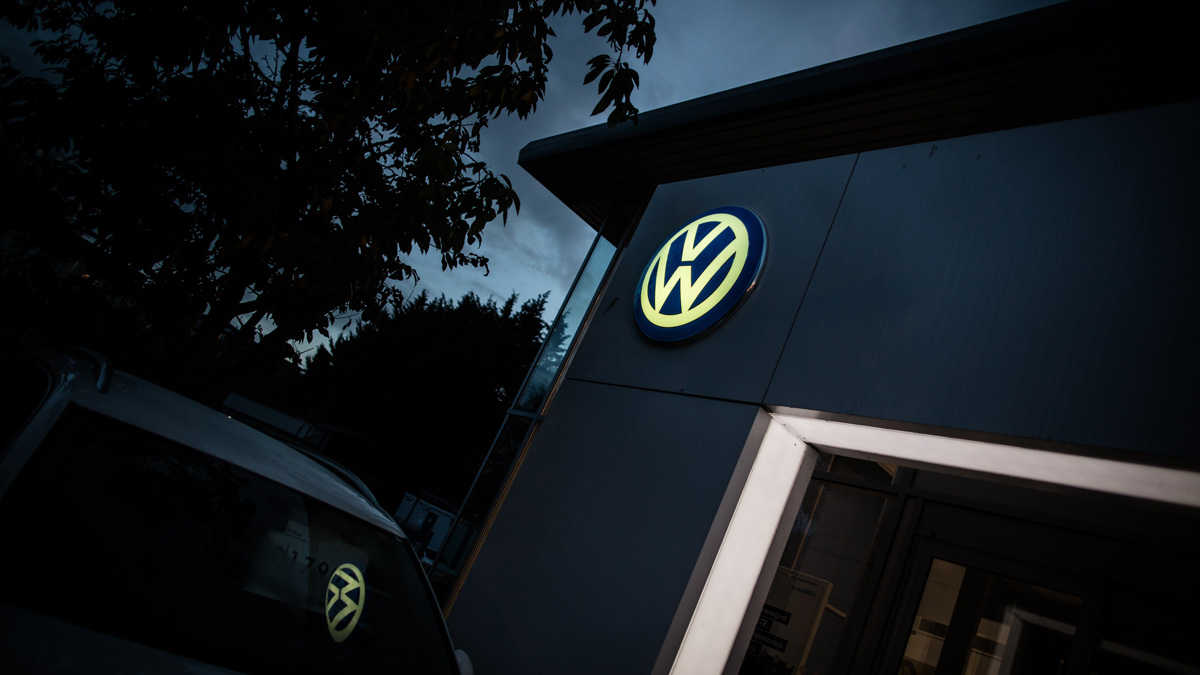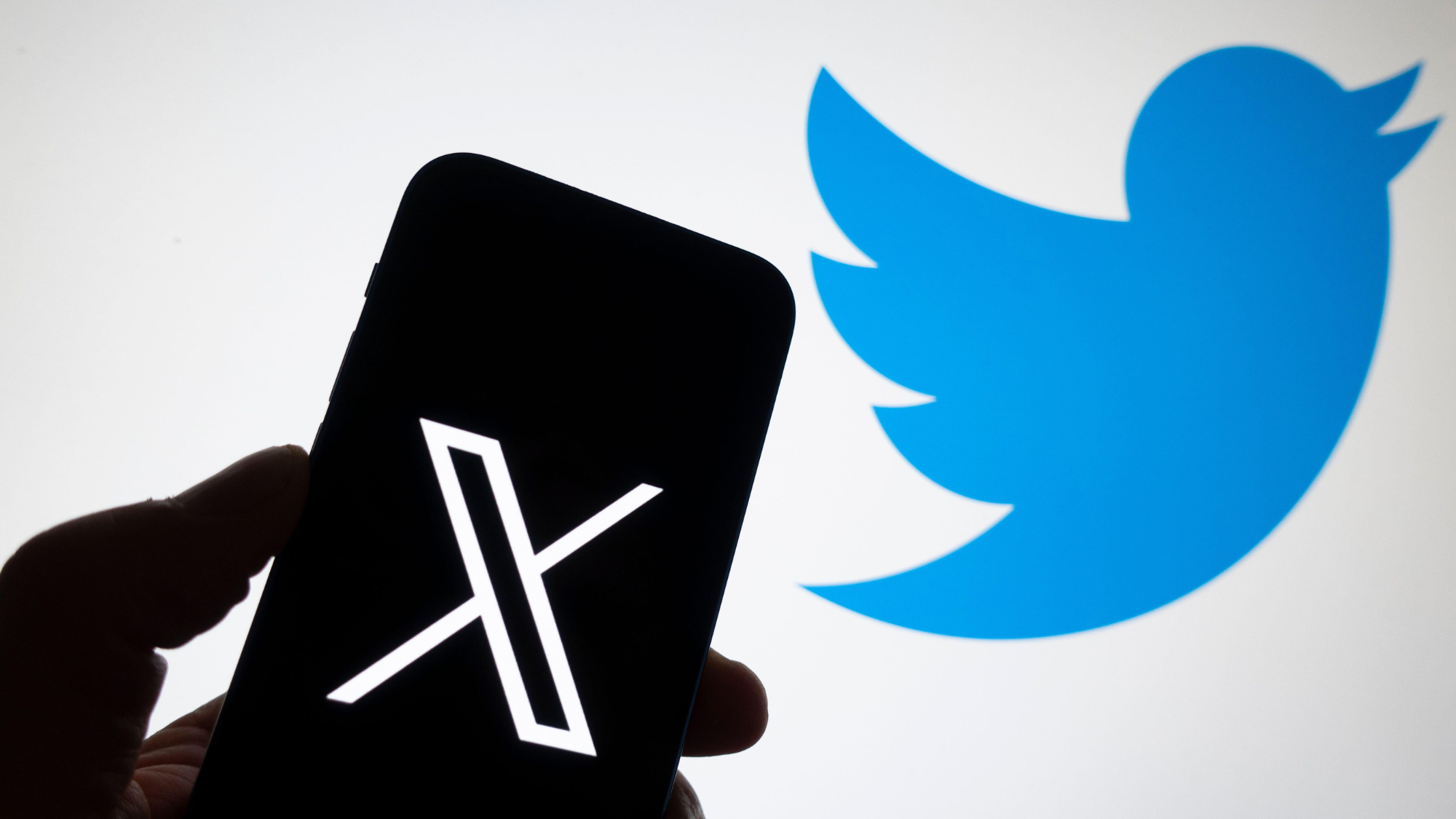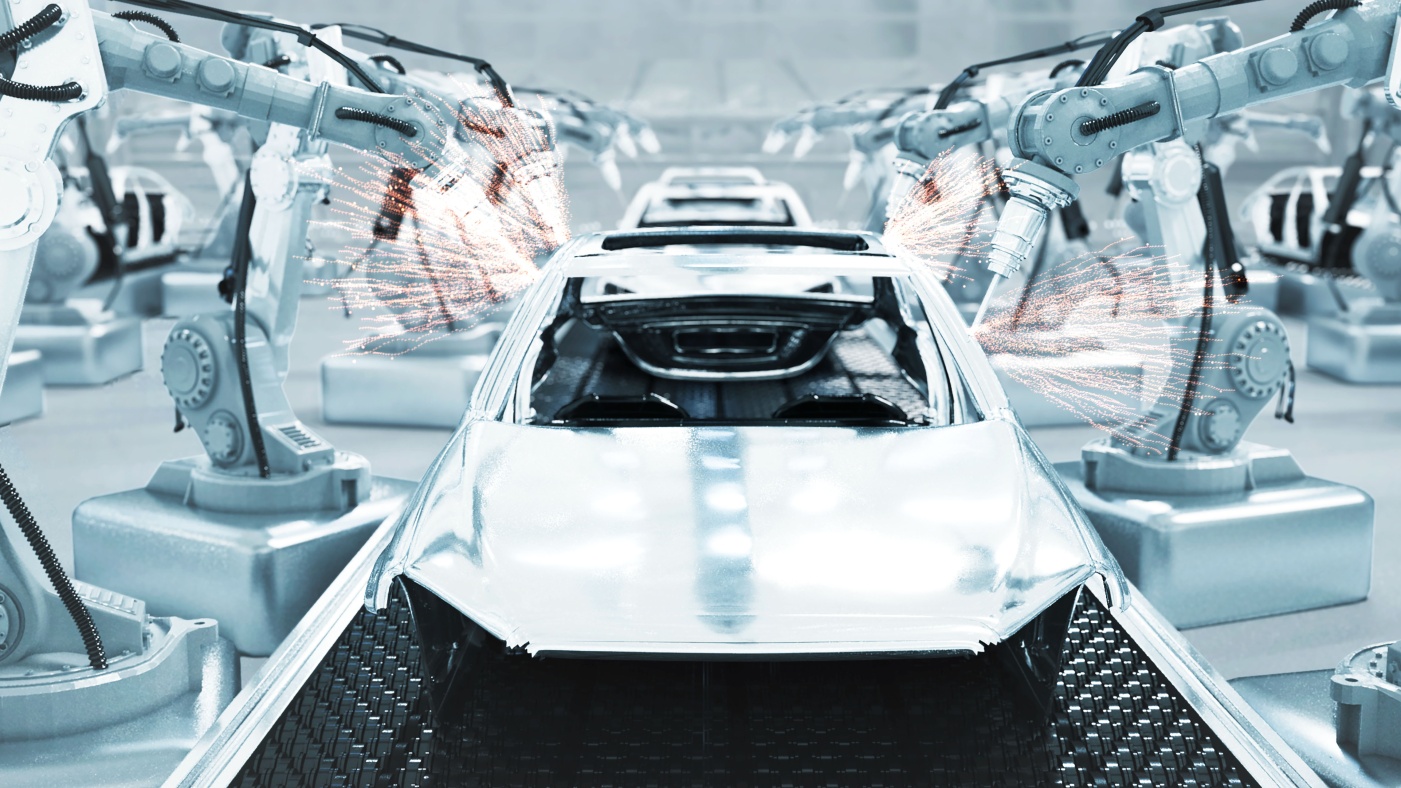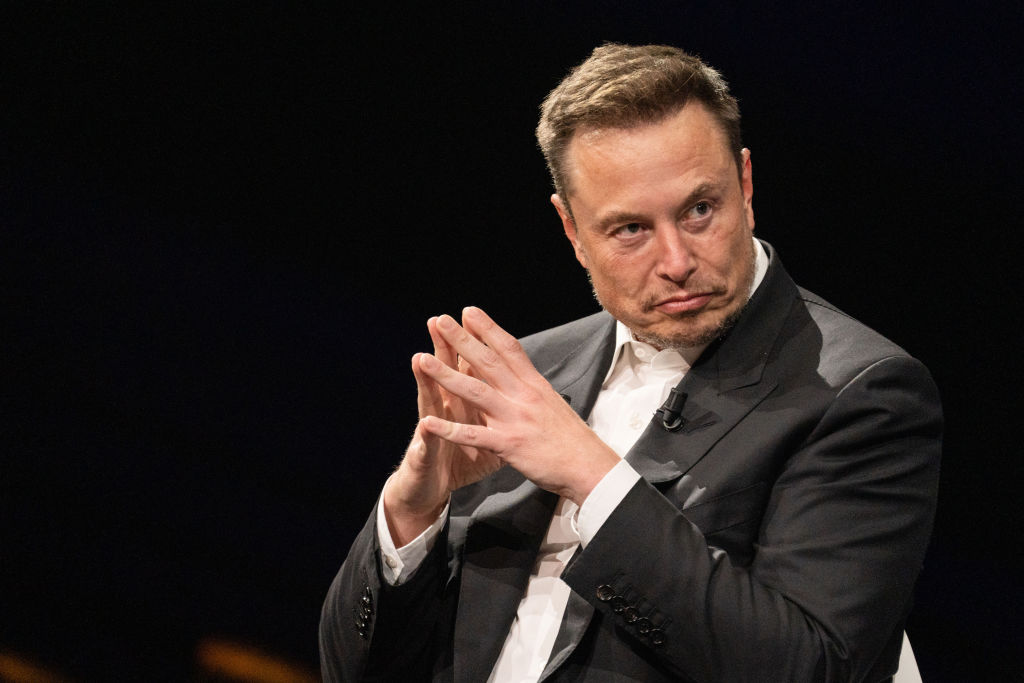VW Scandal: Emission fix leaves thousands with problems
VW Group car owners report power and fuel issues following 'Dieselgate' solution

A free daily email with the biggest news stories of the day – and the best features from TheWeek.com
You are now subscribed
Your newsletter sign-up was successful
Volkswagen plans mass recall of 11m emissions-cheating cars
29 September
Volkswagen is planning a mass recall of up to 11 million cars that were fitted with software to cheat emissions tests, as its new chief executive tries to move on from the global scandal.
New boss Matthias Mueller is working on a "comprehensive" refit plan covering all of the vehicles known to carry the "defeat devices", which put cars into lower emissions settings during test conditions, the Daily Telegraph reports. A "closed door" meeting of managers was told customers will be contacted "in the next few days".
The Week
Escape your echo chamber. Get the facts behind the news, plus analysis from multiple perspectives.

Sign up for The Week's Free Newsletters
From our morning news briefing to a weekly Good News Newsletter, get the best of The Week delivered directly to your inbox.
From our morning news briefing to a weekly Good News Newsletter, get the best of The Week delivered directly to your inbox.
This will not be the end of the matter, however. Retuned cars are very likely to suffer from worse performance and lower fuel economy than drivers had been promised, which would form the basis for multi-billion pound class action lawsuits that have already attracted thousands of Volkswagen drivers (see below).
The regulatory fallout from the scandal has also continued to bite. Bloomberg reports that Volskwagen diesel sales have now been halted in the Netherlands and Spain, adding to a ban on certain models in Switzerland. [[{"type":"media","view_mode":"content_original","fid":"84916","attributes":{"class":"media-image"}}]]
Criminal investigations that could result in fines worth billions are underway in the United States and Germany, with Sweden the latest to indicate it may follow suit. The Guardian also reports state prosecutors in Germany are pursuing an investigation directly against former chief executive Michael Winterkorn.
Volkswagen gave an update yesterday on which cars and modes have been affected, including five million Volkswagen branded cars, 2.1 million Audi and 1.2 million Skoda. The remaining 2.7 million cars are yet to be identified. A spokesperson for Audi said its affected models include the A1, A3, A4, A5, A6, TT, Q3 and Q5.
A free daily email with the biggest news stories of the day – and the best features from TheWeek.com
The company's shares were down one per cent on Tuesday and remain below €100, down more than a third since the scandal came to light.
Volkswagen scandal: woes mounting for new chief
28 September
On Friday the embattled carmaker Volkswagen appointed the head of its Porsche sports car division Matthias Mueller as its new chief executive. He faces quite a challenge turning around the German car manufacturer's fortunes in the midst of the global diesel emissions scandal.
The latest revelations to batter Volkswagen, the largest carmaker in the world, include that it was warned as long ago as 2007 over software used to cheat emissions tests. The Guardian cites reports in two national newspapers in Germany that Volkswagen bosses were warned against illegal application of the technology by the carmaker's supplier Bosch eight years ago, while an employee issued a separate warning in 2011 that was also ignored.
That Volkswagen was told its "default devices" were likely to be illegal so long ago and that it failed to heed a second warning will emphasise the view that its actions were deliberate and calculated, adding to the reputational damage for the brand.
Before the company can rebuild trust with consumers, it must survive the current storm and the costs it is likely to bring with it. These include up to $18bn in fines in the US alone – investigations are also ongoing elsewhere – and billions in claims in the US and Europe from drivers who will claim they were mis-sold cars. Thousands of drivers have already joined class action lawsuits.
If cars are recalled and the software switched on to reduce emissions during normal driving conditions, the vehicles' performance and fuel economy are likely to be much lower than advertised. If cars are not upgraded, they could face penalties for emitting more than the legal limit of particulates, including in the UK increased road tax and parking charges in some areas. In any case, secondary resale values will very likely fall for affected models, which are so far known to include certain models of Volkswagen Passat and Tiguan.
Volkswagen has set aside €6.5bn to cover recalls redress for customers – but most think the bill will be much higher.
The BBC notes that the European Central Bank is also reviewing whether to remove Volkswagen from its list of companies from which it buys bonds as part of its stimulus programme, which could reduce funding for the financing it provides to customers buying its cars. With the threat of bans on sales of certain models also hanging in the air – and already in place in Switzerland – revenues could be severely impacted.
All of this explains why shares are falling again today after steep declines last week, down more than seven per cent to less than €100.
Volkswagen 'bloodletting' aims to draw line under scandal
25 September
Volkswagen's 20-member supervisory board is holding a scheduled meeting today, during which it will discuss extraordinary actions and events.
First up will be the rapid appointment of a new chief executive to replace Martin Winterkorn, who resigned on Wednesday in the wake of the global emissions scandal. Reuters cites a source who says Matthias Mueller, the head of its Porsche sports car brand, is to be handed the top job. Mueller is thought to have the backing of the a majority of the board, and of the Porsche-Piech family members who control a majority of the voting rights.
It is also expected to announce the sacking of four more executives in what the BBC's Theo Leggett describes as a "major bloodletting exercise" designed to draw a line under the scandal.
Finally, it will give "more precise details about which brands and models" have been fitted with the software to "cheat" emissions tests. The Guardian says so far vehicles with the EA189, 2.0 litre TDI engine have been implicated, including "big sellers" across the group's brands such as the VW Golf and Passat, Audi A4 and Skoda Octavia.
Whether that will be enough to let Volkswagen put the scandal behind it is debatable. Shares have risen slightly on Friday but are still down around 30 per cent over the past week. The company is facing huge fines, running into the billions of dollars, resulting from criminal prosecutions in the US and Europe, while private class-action lawsuits could lead to mass compensation for mis-selling all over the world.
For the sector, too, the issue has broad implications, with BMW the latest to be snared after tests found emissions from its vehicles were higher than stated. Other carmakers are likely to be investigated, while the testing regime on both sides of the Atlantic is being heavily scrutinised.
In this there may be positives. Writing for The Guardian, John Vidal says a review may bring to an end "lax emissions tests" that allow car makers to make "significant adjustments to the car so it drives more efficiently on the test bed" than on the road.
The New Yorker adds that the scandal could help change car buying habits and signal a move to greener technologies "by making it clear that the high-performance, low-emissions, low-polluting affordable diesel car was always an illusion".
VW could face record UK class-action lawsuit
24 September
The emissions scandal at Volkswagen could lead to the largest ever UK class-action lawsuit, reports suggest, as legal action gets underway in the US.
In the wake of the revelations that the car marker used a "defeat device" – software that allows vehicles to mask their true emissions during US tests – an American law firm announced yesterday that it is launching a class-action case against VW.
Eleven million vehicles with the 'defeat devices' were sold worldwide and hundreds of thousands are thought to be on Britain's roads. With UK drivers due to discover today if their cars were affected, a similar law suit could be filed here.
British lawyers are urging UK motorists to prepare for such an action. Under the Consumer Rights Act, which coincidentally comes into force next Thursday, VW owners, whose cars could plunge in value, can launch collective actions.
Bozena Michalowska Howells of the law firm Leigh Day said: "If it is shown that this piece of software defeated the European testing then Volkswagen would be in a very similar position as it is in the US and may well then have to call in their cars with all the resulting costs involved.
"This could well lead to one of the largest group claims ever in this country against Volkswagen for the way in which consumers may have been misled in relation to their vehicle."
Volkswagen CEO Martin Winterkorn has resigned over the scandal, saying he accepts "responsibility" and that Volkswagen needs "a fresh start". However, this may be just the tip of the iceberg. Commentators predict the crisis will turn into a costlier saga than the Libor scandal, while Natalie Bennett, the Green Party leader, is leading calls for the authorities to consider corporate manslaughter charges.
Volkswagen CEO resigns over diesel scandal
23 September
At the end of an emergency board meeting held this afternoon, Volkswagen boss Martin Winterkorn has announced he is resigning following the revelations that the company used a software program to fix emissions tests in the US.
The Daily Telegraph quotes Winterkorn saying he was "shocked by the events of the past few days" and that he is "stunned that misconduct on such a scale was possible" at the company. He said he accepts "responsibility" and was stepping aside as Volkswagen needs "a fresh start".
The German carmaker, the largest in the world by sales, has endured another volatile trading day, initially plunging seven per cent before recovering and now registering a near-eight per cent rise. But it remains around a third down on where it began the week and is facing the threat of criminal prosecutions in the US and Germany.
There is also concern for what the scandal might mean for the wider industry. According to various experts, the scandal could kill off diesel cars for good and even damage global economic growth.
VW, which has admitted it deceived US regulators in exhaust emissions tests, faces several investigations in the US that could result in huge financial damage. It has already set aside €6.5bn (£4.7bn) to cover the costs of the scandal. But aside from VW's own losses and reputational damage, analysts fear there could be a wider fallout from the crisis.
Bernstein says the scandal "probably does" signal the end of diesel as a mainstream fuel. "The move against VW is going to act as a catalyst to speed up the fall in diesel market share in Europe and halt it in the US," it said in a note to clients. The investment house believes that increased scrutiny for diesel "may prove either too difficult – or too expensive – for [the industry] to meet".
Thus far, the scandal is confined to the US where just 3% of passenger cars are diesel. Should it spread to Europe, the ramifications will be considerable as diesel fuel powers almost half the cars in the EU. Alistair Osborne of The Times wonders whether Paris's plan to ban diesel cars by 2020 will now be followed by other cities, including London.
Raising the stakes yet higher is Marc Ostwald of ADM Investor Services. With the potential for the fallout to spread to the rest of the automobile sector, the analyst said the scandal could yet "have potentially very damaging ramifications for global growth".
Mike Hawes, the chief executive of Britain's car lobby, the Society of Motor Manufacturers and Traders, offers a more measured tone. He says the VW issue "is not an industry-wide problem". He predicts that the matter will be confined to the German manufacturer, "and I am sure they will be acting as swiftly as possible".
Volkswagen scandal: the car industry's Libor?
22 September
"We have totally screwed up," said Volkswagen's US boss Michael Horn, as he admitted yesterday that his firm was dishonest with US regulators.
The company is facing criminal charges and fines that could reach into the billions after it was found to have fitted 500,000 diesel cars in the US with software that 'cheated' on emissions tests, making the output of harmful pollutants appear 40 times lower than under normal driving conditions.
Its shares fell by as much as 23 per cent on Monday and closed down 17 per cent. They were down again by 20 per cent on Tuesday.
"Is this the car industry's version of Libor, the scandal that rocked the financial world?" asks the BBC's transport correspondent, Richard Westcott. It has the potential to deal the struggling car industry damage in America, but could have devastating consequences if it crosses the Atlantic, as "over half of all new cars sold in Europe are a diesel".
Mike Hawes, chief executive of the UK's Society of Motor Manufacturers and Traders, said the scandal is unlikely to spread to Europe as the EU operates a "fundamentally different system", with stricter tests performed at random under supervision.
Nonetheless, as the US authorities announce they are extending their probe, the German government has confirmed that it too is investigating the sector, with wider EU reviews likely to follow.
For Volkswagen, the explosive revelations are already taking a toll. Bloomberg says criminal proceedings are under way in the US with widespread reports that fines could be as high as $18bn (the company has set aside €6.5bn so far).
The Economist says the company was already struggling with falling sales, and that its plunging share price underlines the existential threat posed by this reputational blow. The Times reports it has admitted that has many as 11 million cars in use worldwide could be affected.
Writing in the Daily Telegraph Alistair Heath says the "alleged behaviour was far, far worse even than seen during the Libor scandal" and implies "a deliberate and coordinated attempt… to con the authorities on a massive scale" and sell cars "that did not meet environmental standards". If the deceit is found to be more widespread, it could prove catastrophic for an industry that finds itself under threat from disruptive technology firms.
Citing news that Apple could launch its "first proper electric car in 2019", Heath says incumbent car brands should be "quaking in their boots" and that the Volkswagen scandal is "truly the last thing… it needed".
Volkswagen has posted its firstquarterly loss in 15 years, as the ongoing global diesel emissions scandalbegins to bite.
The company, which until newfigures were published this week was the largest car maker in the world bysales, recorded a loss of €3.5bn (£2.5bn) for the three months to September.This was down from a profit of around €2.9bn during the same period last year,the Financial Times reports.
As the scandal broke late in thefinal month of the quarter, sales are unlikely to have been affected and theswing into the red was the result of the €6.7bn provision the company has setaside to fix cars fitted with software designed to cheat emissions tests. Thisfigure is up from the original €6.5bn that was set aside.
Further financial hits willfollow, as an inevitable slowdown in sales flows through in future quarters andcosts from fines and litigations related to the scandal begin to land furtherdown the line. Reuters says [2] the "total bill" for the scandalcould reach €35bn – and some suggest it could be higher still (see below).
But despite all of this,Volkswagen's shares rose strongly on Wednesday. By the afternoon they had risento €109.55, still down around a quarter on the level before the crisis, but 4.3per cent higher for the day.
This reflects the fact that thelosses were 'priced in' and were in line with predictions of analysts in recentweeks. It also reflects a strong balance sheet that should withstand thefinancial hit, with cash and liquid assets rising to €28bn in the third quarterand a further €3.7bn deal involving VW's holding in financing company LeasePlanyet to be booked.
"Together with the verystrong net liquidity, this should reassure both equity and fixed incomeinvestors," said Arndt Ellinghorst, an analyst at Evercore ISI.
-
 The ‘ravenous’ demand for Cornish minerals
The ‘ravenous’ demand for Cornish mineralsUnder the Radar Growing need for critical minerals to power tech has intensified ‘appetite’ for lithium, which could be a ‘huge boon’ for local economy
-
 Why are election experts taking Trump’s midterm threats seriously?
Why are election experts taking Trump’s midterm threats seriously?IN THE SPOTLIGHT As the president muses about polling place deployments and a centralized electoral system aimed at one-party control, lawmakers are taking this administration at its word
-
 ‘Restaurateurs have become millionaires’
‘Restaurateurs have become millionaires’Instant Opinion Opinion, comment and editorials of the day
-
 3 varied alternatives to X for when you simply cannot with the new iteration of Twitter
3 varied alternatives to X for when you simply cannot with the new iteration of TwitterThe Explainer These competing microblogging sites have struggled to catch up to Elon Musk's market behemoth
-
 Twitter: Breaking the Bird – a 'riveting' documentary
Twitter: Breaking the Bird – a 'riveting' documentaryThe Week Recommends BBC2's 'fascinating' film charts the social media platform's fall from grace
-
 EV market slowdown: a bump in the road for Tesla?
EV market slowdown: a bump in the road for Tesla?Talking Points The electric vehicle market has stalled – with worrying consequences for carmakers
-
 2023: the year of the billionaire villain
2023: the year of the billionaire villainThe Explainer The 21st-century Dr. Evil is taking over the world in books, TV series and popular culture
-
 From 'thunks' to mixed reality, the future of books is interactive
From 'thunks' to mixed reality, the future of books is interactiveThe Explainer What is in store for literature in an increasingly digital world?
-
 Volkswagen ID.5 review: what the car critics say
Volkswagen ID.5 review: what the car critics sayFeature The ID.4's 'sportier, more stylish twin' – but 'don't believe the hype'
-
 Walter Isaacson's 'Elon Musk' can 'scarcely contain its subject'
Walter Isaacson's 'Elon Musk' can 'scarcely contain its subject'The latest biography on the elusive tech mogul is causing a stir among critics
-
 VW ID Buzz review: what the car critics say
VW ID Buzz review: what the car critics sayfeature The new ID Buzz electric van is a modern successor to Volkswagen’s beloved Type 2